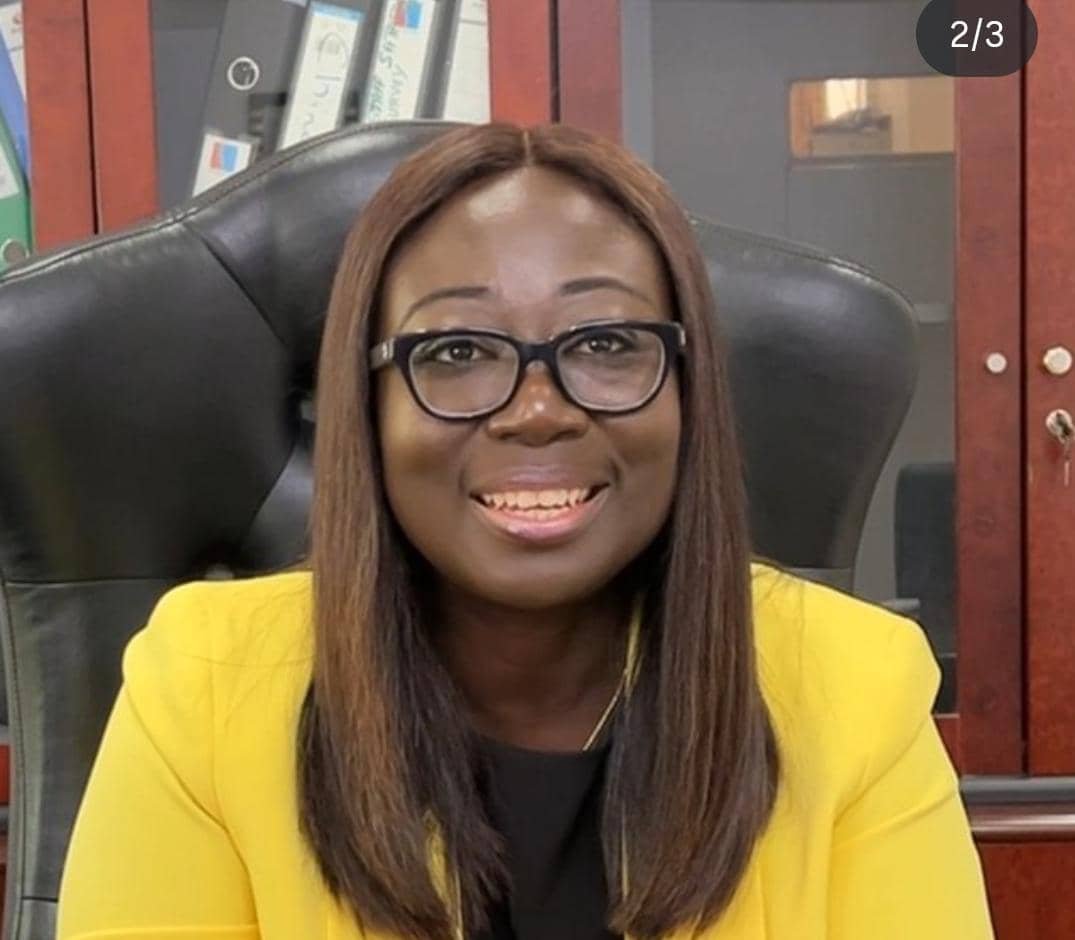Gender
WiSA launched to accelerate growth, close gender inequality gap

Women in Sustainability Africa (WiSA) has been launched in Accra with an aim to accelerate growth and the closure of gender inequality gap.
Speaking at the launch, the Convenor for WiSA, Nana Yaa Serwaa Sarpong, said that, “Gender inequality gap cannot be closed by women alone, calling for catalytic efforts to cause a revolution in order to achieve such goal.”
Madam Sarpong also stated that, “this is the new beginning of gender empowerment and the new wave which must be propagated across Africa without any antagonism.”
She said the key to bridging gender inequality gap is two sided, saying that, “First is men standing side by side with women and secondly, the recognition of women as a source of labour with positive return on every investment that is made to build capacity in women.”
Additionally, Madam Sarpong underlined that the organisation will work with men, ‘he or she’ champions, CSOs, Corporate Institutions, local and International Development Organisations to bring all women and women groups together (especially those at the grassroots level) to foster the achievement of the Sustainable Development Goals (SDGs) across Africa.
The Minister for Gender, Children and Social Protection, Dr Agnes Naa Momo Lartey, said recognising the proportionate impact of climate change on women, the Ministry has developed a roadmap to strengthen gender responsiveness of social protection programmes.
According to her, this initiative aims to ensure that their interventions were inclusive, equitable and effective in building resilience among vulnerable populations.
The campaign will be celebrated as part of the activities of May 1, and throughout the month of May every year.
She disclosed that in partnership with WiSA and other stakeholders.
Dr Lartey again indicated that he Ministry will use the campaign to recognise women nationally and continentally as sources of labour and agents of sustainability.
Furthermore, the Minister stated that the campaign would be rolled out in schools, media platforms and community spaces.
The Minister of State in charge of Climate Change and Sustainability, Issifu Seidu, on his part said, “African women have always been the backbone of our communities, playing key roles in agriculture, healthcare, education, and the informal economy.
However, he noted that their contributions remain undervalued and underappreciated in many spheres of society.
By Esinam Jemima Kuatsinu
Gender
Ending maternal mortality: A national, moral duty to mothers

When Ama Serwaa stepped out of her room that night, she paused at the doorway and looked back. Her two-year-old son was asleep, his tiny chest rising and falling gently. She bent, kissed his forehead and whispered, “Mummy will be back soon.”
It was a promise she never kept.
Ama was 28, seven months pregnant, and hopeful. She had been feeling unwell all day, but as many women do, she tried to endure it. When the bleeding started, fear crept in.
By the time her husband and neighbours realised it was serious, night had fallen and transport was hard to find. The nearest health facility was far away. Every minute felt like an hour.
By the time Ama arrived at the Ada district hospital, she was barely conscious. Within minutes, she was gone. Her unborn baby died with her.
In one night, a child lost his mother, a husband lost his wife, and a family lost its future. Ama became another silent statistics- another woman who left home pregnant and never returned alive.
Maternal mortality remains a challenge as far as reproductive healthcare services in Ghana are concerned.
The World Health Organisation (WHO) defines it as the death of a woman while pregnant or within 42 days of termination of pregnancy, regardless of the duration of the pregnancy, from any cause related to or aggravated by the pregnancy or its management but not from accidental or incidental causes.
This continues to be a great concern with majority of all maternal deaths occurring in developing Africa with more than half in Sub- Saharan Africa.
The Ghana Health Service (GHS) says, the country has recorded a slight increase in the institutional maternal mortality rate for 2024.
Data presented by the Director for Family Health, Dr Kennedy Brightson, at the Fifth National Maternal, Child Health, and Nutrition Conference in Accra shows a rise from 109.22 per 100,000 live births in 2023 to 110 per 100,000 live births in 2024.
Owing to the still high levels of maternal mortality in developing countries, especially Africa, it is now increasingly being recognised that actions required to achieve improvements in maternal health should involve comprehensive, multi-faceted approach.
Across Ghana, stories like Ama’s unfold quietly. There are no sirens, no headlines, no public mourning. Just hurried burials, unanswered questions and children growing up with fading memories of a mother’s voice.
It is this painful reality that formed the backdrop to a high-level Maternal Mortality Roundtable attended by the Minister for Gender, Children and Social Protection, Dr Agnes Naa Momo Lartey, as Ghana intensifies efforts to end preventable maternal deaths.
The roundtable, convened by the Office of the President through the SDGs Advisory Unit, in collaboration with the United Nations Population Fund (UNFPA) and the National Development Planning Commission (NDPC), was held under the theme: “No woman should lose her life to give a life.”
But for families like Ama’s, these words must mean more than fine speeches and conference banners. They must mean real change that reaches the last woman in the last village.
Speaking with emotion and urgency, Dr Lartey reminded participants that maternal mortality is not just a medical failure, but a failure of care, equity and accountability.
“Saving women’s lives must go beyond rhetoric,” she stressed. “It must be seen, felt and materialised in our communities, our clinics and our homes.”
She called for strong community accountability mechanisms, warning that when maternal deaths are normalised or hidden, society becomes complicit in the loss. Every woman who dies in childbirth, she noted, leaves behind a trail of grief that does not end at the grave.
“History will not judge us by the speeches we deliver today,” the Minister said quietly, “but by the lives we save through the path we take.”
She urged all stakeholders, government agencies, development partners, traditional and religious leaders to move beyond promises to clear commitments, timelines and responsibility, insisting that maternal health cannot remain an annual discussion while women continue to die daily.
Yet Dr Lartey was equally clear that the fight against maternal deaths also begins with women themselves. She urged pregnant women to take antenatal and postnatal care seriously, noting that many complications are preventable or manageable if detected early.
Health experts present acknowledged a painful truth: some women delay or skip antenatal visits because of distance, cost, fear or cultural beliefs. But these visits can be the thin line between life and death the place where danger signs are noticed before it is too late.
Dr Lartey reminded the nation that maternal health is not the burden of one ministry alone, but a shared moral responsibility — from policy makers to health workers, from chiefs to pastors, from husbands to neighbours.
“When women survive, children are born, families thrive, communities prosper and nations grow,” she said. “Saving women’s lives is not charity. It is justice.”
Today, Ama’s son calls his grandmother “Mama.” Her husband still keeps her cloth folded neatly in a box.
Her absence is felt in small, crushing ways an empty seat, an unanswered call, a child asking questions no one can answer.
Ama’s death should not be just another story told and forgotten. It should be a reminder and a warning.
If Ghana’s commitments remain words on paper, more women will leave home pregnant and never return. But if action replaces rhetoric, if women are supported to seek care, and if communities refuse to stay silent, then fewer families will have to whisper goodbye at a graveside.
By Esinam Jemima Kuatsinu
Gender
Expert urges regular antenatal attendance, adherence to medical advice

Dr. Akua Gyima Asante, the Medical Superintendent of the LEKMA Hospital, has urged pregnant women to attend regular antenatal clinics, adhere strictly to medical advice, and report early to health facilities when they notice any unusual signs.
She advised nursing mothers to practise exclusive breastfeeding, maintain good hygiene, and attend postnatal clinics to ensure the health and wellbeing of both mother and child.
Dr. Asante gave the advice after the LEKMA Hospital recorded nine successful deliveries on New Year’s Day, marking a positive start to the year.
She said the first delivery was recorded at 12:30 a.m., with five male babies and four female babies delivered during the day.
Six of the deliveries were normal, while three were conducted through caesarean section, Dr. Asante said, adding that the mothers and babies were in stable condition and responding well to medical care.
She commended the dedication and professionalism of the hospital’s healthcare staff for their role in ensuring safe deliveries and quality maternal care.
She reaffirmed LEKMA Hospital’s commitment to providing quality maternal and child healthcare services to residents of the Ledzokuku Krowor municipality and called for continued support to help the facility sustain its services. –GNA















